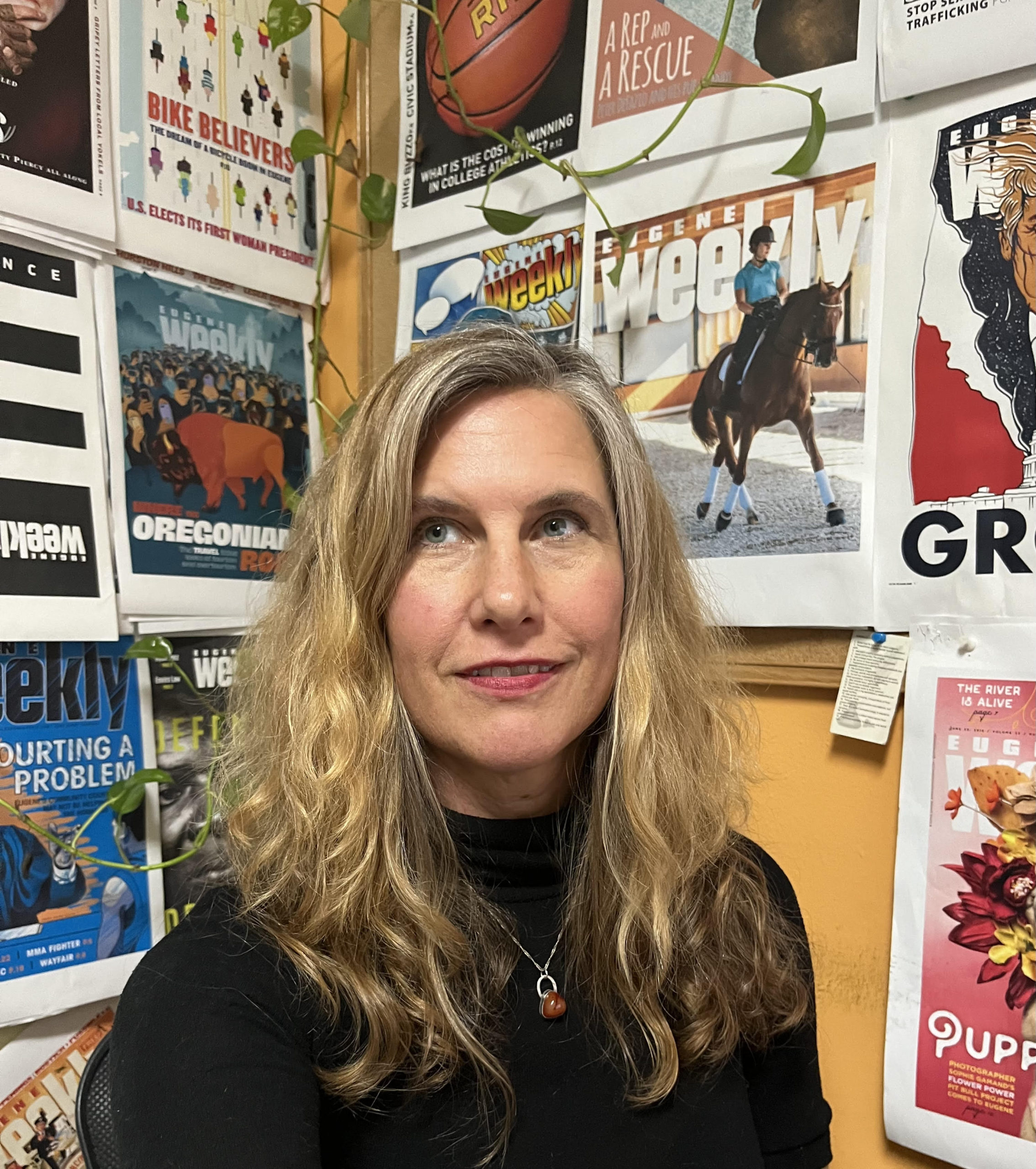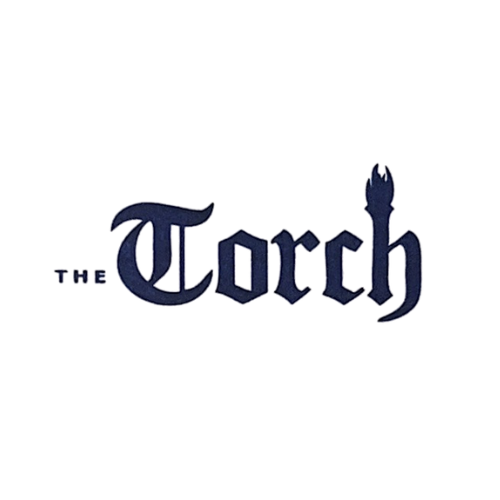Camilla Mortensen is a writing and journalism instructor at Lane Community College. She is also the editor-in-chief of Eugene Weekly. She spoke to The Torch about time management, objective journalism, bias in the classroom, and the legacy she hopes to achieve.
How do you balance two different careers between Editor-in-Chief at Eugene Weekly and writing/journalism instructor at Lane Community College?
I try to block out my time so that when I’m teaching, I’m teaching and when I’m editing, I’m editing. That being said, my students know that I might get a text about work in the middle of class, and I have to take a look at it. In 2020 I couldn’t go home to Zoom, it was too much, so I Zoomed my classes from my newspaper office. I think the biggest thing is at some point during the day, saying I’m done with all my jobs. I’m just going to go home and my work is over. I definitely do almost all my work at the office and leave it at the office once I leave.
As a journalism professor and editor, do you avoid bias or does it come into the classroom?
I follow the same policy for my teaching as I do journalism. Which is: one, admit your biases. Readers and students aren’t stupid and you can try to cover all you want and pretend that you don’t have a bias. If you hide it, that really makes people nervous. That freaks them out more than admitting your bias. Second, there’s a phrase I like, which is that journalism isn’t objective, journalism uses objective methods. Objectivity itself is such a problematic concept though, because it has caused so much drama. For example journalists covered climate change like it was a 50/50 proposition. There’s the small 1% who are like, “Yeah I don’t see it.” Then treating the 1% as if they had the same scientific basis as the 99% which, overall, they did not. This created a misrepresentation that climate change was a debate. But now it has become a political issue and not the scientific issue that it should be. Do you note that there is someone who doesn’t believe it? Yes, but do you give them equal standing? No, because that actually is not fair journalism.
What would you like your legacy to be at both LCC and the Eugene Weekly?
The joy and the legacy is having all these people who go on and produce really good stories and hopefully change the world, even in some small way. Say Hannarose McGuinness, who worked at The Torch and took my journalism course during the pandemic, she just got appointed the editor of the Daily Emerald. Over at the UO Donnie Morrison who was in my class years ago and also worked at The Torch, he went on to get a paid internship for the Wall Street Journal. And published at least one front page story that I know of. He is now working for Law 360, which is a really good law reporting group. Way before my time there was a Torch editor who went on to win the Pulitzer Prize in Florida from the Sun Sentinel. So to me that is the legacy. It’s getting these people to make an impact with these stories. I love having LCC students in my classes and being able to follow them from LCC through their journalism careers. Some of them I also get as interns at the Weekly like Donnie and launching them into journalistic careers is super fun.
What’s your advice to young journalists starting this career?
I think it’s the same advice that I would give to any journalist, which is to learn the rules really, really well. Learn AP style, learn ethics, learn story shapes and then, when you can, break them and break them really well. Because really good stories are stories that follow structure, follow the rules, but then the over the top stories are the ones that do everything they’re supposed to do, but break a rule or two or do something that’s over the top. It’s the people who totally understand journalism and AP style and story structure and then mess with it a little bit that you sort of take it to that level where you’re just like, “Wow this is amazing.”
Has your work as a professor had a positive impact on your career as a journalist?
Definitely. In both the news writing course and my writing courses, I actually use both Eugene Weekly and the Register Guard as my textbook. I have the students read the Weekly and the Guard and come to class ready to discuss what they have been reading. I actually love the fact that by the end of the class they actually like the newspaper. But also for me the LCC students are a really good baseline for what the reading population is. Because you’re going to get someone who’s right out of high school, or students who are still in high school. Or I will get older returning students. I get a whole gamut of folks of the Lane County population and so by reading the newspaper with them I get a greater understanding of how readers are actually reading and what they are actually reading.
Is there anything else you want to add about your career as the editor in chief?
I’m really lucky because when I started at the Weekly I wanted to keep teaching. I really liked teaching and I didn’t want to go back into academics full time. My PhD is in comparative literature and my master’s degree is in folklore and mythology. So I did switch into journalism, but I didn’t want to stop teaching. They agreed when they hired me that that would be something I could do. It didn’t interfere with my news coverage, which is why to my students’ sadness, I always teach almost always at 8 a.m. Schools can be tough if someone’s making a full career as a part-time instructor because you don’t know from term to term whether you’re teaching. It can be really hard to have a career as a part time instructor. I’m what schools envision when they rely upon someone for part time because I have a career that my instruction is informed by and I’m not dependent financially on teaching. I can sort of do both things at the same time. If I don’t teach it just means that I’m not making as much money that term, but I’m also not interacting with students. It’s not a deal breaker for me, instead it’s something that adds on to my career.



